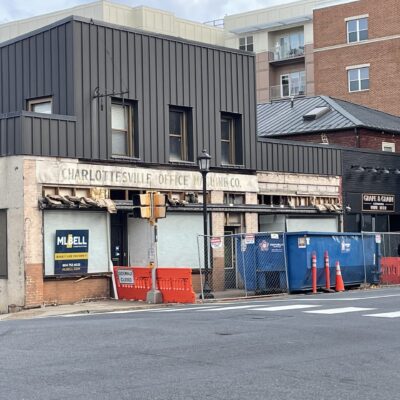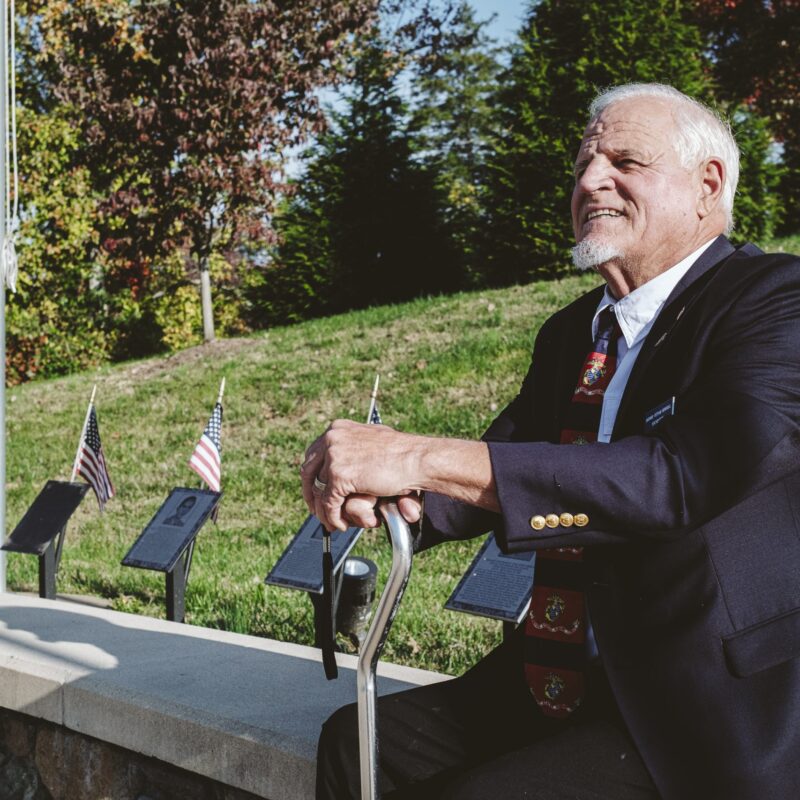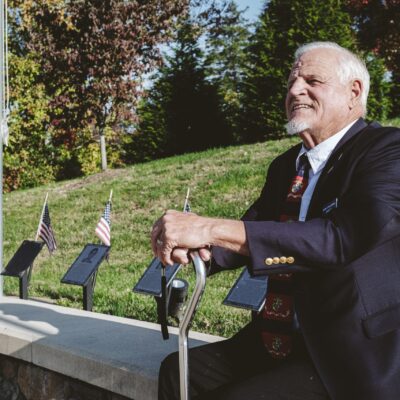|
Charlottesville residents Abby Guskind and Jean Burke were among the 31 people arrested at the State Capitol in Richmond last week for protesting a bill that would have required Virginia women seeking abortions to undergo a transvaginal ultrasound. Governor Bob McDonnell signed a modified version of the bill into law on Wednesday, March 6. (Photo by Ash Daniel) |
“We weren’t criminals,” said 49-year-old Abby Guskind of Charlottesville. “We were just people disagreeing peacefully.”
Gunskind and her friend Jean Burke, a 48-year-old receptionist at the Charlottesville Free Clinic, were among 31 men and women arrested for unlawful assembly and trespassing on the steps of the State Capitol in Richmond Saturday, March 3, when hundreds of people gathered to protest a proposed bill that would force women seeking abortions to undergo a transvaginal ultrasound.
After the Senate amended the bill to exclude victims of rape and incest who file a police report, Governor Bob McDonnell added an amendment to allow women to substitute abdominal ultrasounds for the transvaginal procedures. The bill passed the Senate 21-19 and the House of Delegates 61-35, and McDonnell signed the revised version on Wednesday, March 6.
The governor framed the law as an effort to help mothers make informed decisions about abortion.
“As difficult as an abortion decision is, the information provided by ultrasounds, along with other information given by the doctor pursuant to current law and prevailing medical practice, can help the mother make a fully informed decision. This bill does not legally alter a woman’s ability to make a choice regarding her pregnancy. It does, however, put Virginia in line with 23 other states that have some type of requirement that a woman be offered a view of an ultrasound before an abortion can be performed,” he said in a statement.
Burke, Guskind, and Democratic legislators rejected McDonnell’s rhetoric, and said the bill was aimed at rolling back women’s reproductive rights.
“How offensive and insulting to women,” Burke said. “We’re not able to make that decision? We haven’t given it thought?”
Democratic Senate candidate Tim Kaine called the legislation “bad for Virginia’s image, bad for Virginia’s businesses, and bad for Virginia’s women,” and said social debates distract from the challenges that legislators should be focused on, like job creation and education. House Minority Leader Dave Toscano said the bill reflected a Republican legislative agenda that had gone past the desires of citizens.
“Signing HB462 into law once again focuses attention on what has become the theme of this session—legislative overreach on issues that most Virginians find to be too conservative to be embraced by our citizens,” Toscano said.
“The purpose of this bill,” Burke said, “is not because these people care about babies, it is not because they care about our health. It is because they’re doing everything they can to put obstacles in the way to prevent abortions.”
Whatever the intention of the ultrasound bill, it has succeeded in galvanizing women’s reproductive rights activists across the state. Planned Parenthood called the new law “nothing but an attempt to shame and place barriers for women seeking legal abortion care in Virginia,” and said the police presence that met the Capitol protesters, which included riot gear and dogs, was “excessive.”
“I didn’t believe it,” Gunskind said, reflecting on her experience. “Until they took the first person away, I didn’t believe we would be arrested.”
Guskind got emotional when recalling the feeling of solidarity she shared with other protesters.
“I was listening to women that were at least 15 to 20 years older than me, saying ‘Are you flipping kidding me? We did this how many years ago, and we’re doing it again?’ I can’t believe this is 2012, and we can’t take for granted that we get to make our own decisions,” she said.
After sitting on the steps of the building and refusing to leave, the 17 women and 14 men were handcuffed with zip ties and put onto separate buses. The women said they were fortunate enough to have air conditioning for the first two hours—until a corrections officer stepped onto the bus, removed the keys from the ignition, and left them without fresh air or water for five hours. Burke saw the decision as a “punishment” for yelling out the window to friends and family up the hill who had waited by the bus.
Burke and Guskind called the process demeaning and excessive, but described the overall experience as empowering, and said that they would do it all again. By all accounts, the abortion debate is heating up over the election year flame.
/arrest.jpg)





